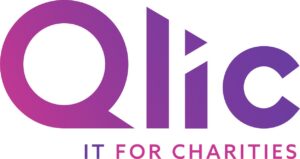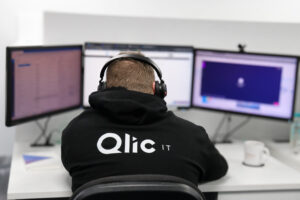Artificial Intelligence (AI) is revolutionising organisation’s operations. Companies across every sector are integrating AI into their daily routines, and non-profit organisations are no exception. According to Deloitte, 74% of companies are currently testing generative AI technologies, with 65% already using them internally. This trend highlights the importance of adopting AI within your organisation.
AI for charities can be a powerful productivity tool offering many advantages such as enhanced efficiency and innovative problem-solving capabilities. However, AI doesn’t come without risks, as AI constantly evolves, its impact can be unpredictable, highlighting the need for effective risk management. This is why nonprofit organisations must implement a comprehensive AI policy to guide and regulate its usage.
In this blog, we will explore why non-profits need to develop an AI policy and provide a detailed AI policy template. We will explain the importance of having a structured approach to AI integration, ensuring you harness the power of AI tools for nonprofits while mitigating potential risks.
What Is an AI Policy and Why You Should Have One
An AI policy is a comprehensive framework that will outline AI best practices and detail how an organisation will implement, manage, and regulate artificial intelligence. This policy serves as a guiding document that establishes best practices, ethical standards, and compliance measures.
By having a clear AI policy, non-profits can navigate the complexities of AI and safeguard against potential risks such as data privacy issues, bias, and unintended consequences. An AI policy ensures that AI initiatives align with the organisation’s mission and values.
Risks of Using AI for Nonprofits
While AI tools offer a wide range of advantages, it’s important to be aware of the associated risks. To better understand these risks, you should have a rough idea of how AI tools work. Tools like ChatGPT and Microsoft Copilot, are a type of AI model that works with text. They’re trained on enormous amounts of written data from the internet, books, and other sources.
However, it’s important to remember that while LLMs can produce impressive results, they don’t actually understand or think like humans. This is why they can produce errors and they must be supervised by a human.
Here are some of the key risks that charities should consider:
- Accuracy and Accountability: AI systems have their limitations and can sometimes produce inaccurate results or results you can’t trace back to specific algorithms or data sources. This lack of transparency makes it hard to pinpoint responsibility when errors occur. Having a clear accountability structure in place helps prevent legal issues and reputation damage.
- Skills Gap: Not everyone in your organisation may have the skills or capacity to learn AI technology. This can create a skills gap, making it challenging to implement and manage AI tools effectively.
- Cyber Security Risks: Cyber security for charities is crucial. AI systems can be vulnerable to attacks, which can compromise sensitive data and disrupt operations. Ensure your charity has robust cyber security measures to protect against these threats.
- Bias and Discrimination Risks: AI algorithms can unintentionally perpetuate bias and discrimination if they are trained on biased data. This can lead to unfair treatment of certain groups and undermine the integrity of the organisation’s work.
- Data Privacy: The use of AI often involves processing large amounts of personal data. Ensuring compliance with data protection regulations is essential to protect sensitive data. One way to reduce the level of risk is by adhering to the principle of data minimisation, which means using only data that is necessary to complete the task.
- Plagiarism: AI tools that generate content or perform tasks like translation can sometimes produce work that is not original, leading to plagiarism and intellectual property concerns. Keep an eye on the originality and integrity of AI content.

The Importance of Having an AI Policy in Your Charity
Developing a comprehensive AI policy is crucial for charities to manage and regulate the use of AI. Here are some key reasons why having an AI policy is important:
- Guidelines for Employees: An AI policy sets clear guidelines for all employees on the use of AI and for what purposes. This ensures that everyone in the organisation uses AI consistently and appropriately.
- Understanding Risks and Potential: With an AI policy, you can outline the risks and benefits of AI. This helps stakeholders and employees understand the implications of using AI technologies.
- Data Security: Data security when using AI can be listed under the policy. This ensures that the organisation has measures to secure and handle sensitive data.
- Quality, Transparency, and Accuracy: Establishing standards for the quality, transparency, and accuracy of AI outputs helps maintain the integrity of the organisation’s work.
- Regulatory Compliance: An AI policy helps ensure that the organisation complies with data protection, ethical use, and other relevant legal frameworks. This reduces the risk of legal issues and fines.
- Stakeholder Consent: Obtaining consent from stakeholders for the use of AI technologies demonstrates respect for their rights and interests.
- Brand Reputation: Having a well-defined AI policy shows that the organisation is prepared and proactive in adopting new technologies responsibly.
In addition, organisations can refer to our Complete Guide to AI Best Practices for Not-for-profits, which provides detailed guidance on ethical and effective AI adoption.
How to Create an AI Policy Template for Nonprofits
Creating an AI policy for your organisation is essential to ensure that the use of AI aligns with your mission, values, and regulatory requirements. To make an effective AI policy template you should include the following key elements:
- AI Policy Statement
- AI Policy Principles
- Development and Deployment
- Data Management and Compliance Environment
- Continuous Monitoring and Updates
- Training and Awareness
- Governance
- Compliance
Let’s delve into each step of the AI policy template in more detail.
AI Policy Statement
Firstly, clearly state why the policy is being implemented, focusing on the ethical use of AI to enhance your charitable goals. Then define the scope of the policy, specifying that it applies to all staff, volunteers, and partners involved in AI development and deployment.
AI Policy Principles
Establish guiding principles that reflect your commitment to responsible AI use. These principles may include fairness, accountability, transparency and privacy. They should align with the AI framework you follow, ensuring consistency. This framework provides a structured approach ensuring you deploy and manage AI technologies that adhere to ethical standards and legal requirements.
Development and Deployment
Development and deployment is the next stage of the AI policy template.
Needs Assessment: Conduct a thorough needs assessment to determine the necessity and potential impact of AI in your organisation.
Risk Assessment: Perform a risk assessment to identify potential ethical, legal, and social implications of the AI system.
Boundaries and Limits: Set clear boundaries and limits for the use of AI to prevent misuse and ensure ethical deployment.
Data Management and Compliance Environment
Ensuring you have data management and a robust compliance environment before using AI technology is crucial.
Data Quality: Ensure that the data used in AI systems is accurate, relevant, and up-to-date to maintain the integrity of AI outputs.
Data Management: Specify which data can be used and how it should be managed within AI tools.
Consent: Obtain informed consent from individuals whose data is used, where applicable, to respect privacy and autonomy.
Regulatory Compliance: Ensure compliance with local, regional, and international data privacy laws such as GDPR to protect data and maintain trust.
Continuous Monitoring and Updates
Make sure you have an individual or team within your organisation who are able to continuously monitor the use of AI and keep an eye on updates.
Regular Audits: Conduct regular audits to assess compliance with the AI policy and identify areas for improvement.
Performance and Impact Monitoring: Continuously monitor the performance and impact of AI systems to ensure they meet the intended goals and adapt to evolving standards.
Training and Awareness
Training and awareness for your organisation is key. AI is a new advancement in technology, so making sure your staff and volunteers and aware of the uses and capabilities of AI is key. Provide regular training to staff on AI technologies, ethical considerations, and compliance with the AI policy.
Governance
Establish a team within your organisation that can oversee the development and usage of AI systems. This team should be responsible for ensuring that AI initiatives align with the organisation’s mission and values and that ethical standards are upheld.
Compliance
Decide on the measures to take when the AI policy is not respected. This could include disciplinary actions, revisions to the policy, or additional training to address non-compliance issues.
By following these steps, nonprofits can create a robust AI policy that guides the ethical and effective use of AI technologies.

Closing Thoughts on AI Policy
Having a comprehensive AI policy template is crucial for non-profit organisations. Creating an AI policy guarantees that the technology is applied in a way that minimises risks and is in line with the organization’s goals and values.
For AI systems to guarantee precision, responsibility, and moral adherence, human oversight is still necessary. By implementing an AI policy, non-profits can harness the power of AI effectively and make the most of its advantages.
Using AI the right way can really boost your charity’s work, allowing you to fulfil your mission more efficiently and effectively. With the right AI policy in place, your organisation can make the most of AI technology, ensuring it remains a valuable asset rather than a potential liability.
GET IN TOUCH
Would your charity like to find out more about AI best practices and tools for nonprofits and how they can enhance your charity’s productivity? Book your FREE Consultation with our IT experts at Qlic IT by clicking the button below.






